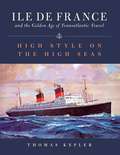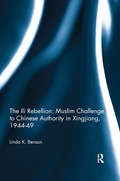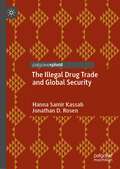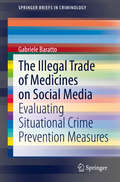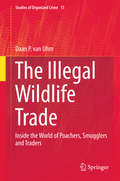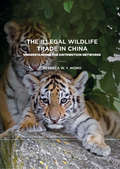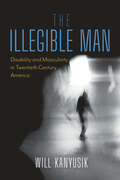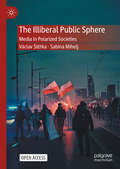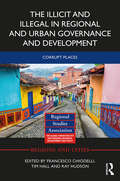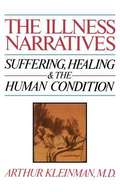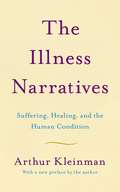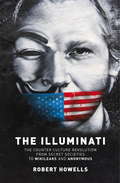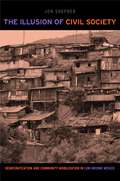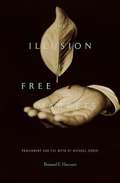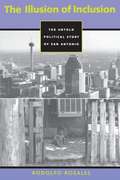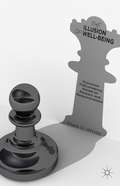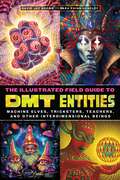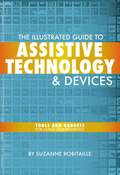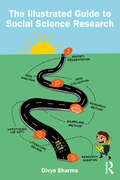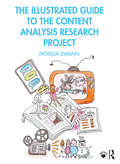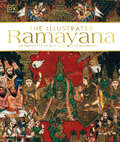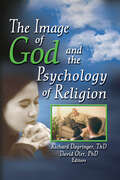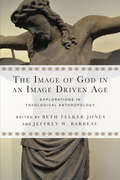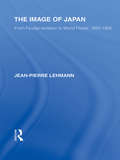- Table View
- List View
The Ile de France and the Golden Age of Transatlantic Travel: High Style on the High Seas
by Thomas KeplerWhen the luxury liner Ile de France sailed into New York harbor for the first time in 1927, she brought to America the first great, coordinated example of what the French then called L'Art Moderne. The revolutionary Art Deco interiors found on the Ile de France were unlike anything previously seen on the North Atlantic and set a standard in ocean liner décor for decades to come. Her glittering passenger lists of the 1920s and 1930s were the envy of other shipping lines: Marlene Dietrich, Gloria Swanson, John D. Rockefeller, Buster Keaton, Barbara Hutton, Maurice Chevalier, Will Rogers, Cary Grant, Marie Curie and Arturo Toscanini were but a few of the luminaries that graced its salons. The Ile de France served heroically in World War II as a troopship, and in peacetime came to the rescue of other ships nine times during her career, most notably when she rescued more than 700 survivors from the stricken Andrea Doria following its collision with the Stockholm in 1956. In a last gasp of immortality, the Ile de France appeared in the epic disaster film The Last Voyage standing in for a fictional, stricken liner. Forgetting her ignoble end, the Ile deFrance is still held in awe and reverence both in her native France and by the maritime community worldwide. Although neither the fastest nor the largest liner of her time, one writer said of the Ile de France, &“She was handsome without being grand, comfortable without being overstuffed, class-conscious without living by exclusions.&” The penchant the Ile de France had for attracting the famous, the talented, the youthful, along with her special chic and verve ensured her place in the pantheon of immortal Atlantic liners.
The Ili Rebellion: Muslim Challenge to Chinese Authority in Xingjiang, 1944-49
by Linda K. BensonIn 1944 Moslem forces in China's westernmost province of Xinjiang rose against the Chinese authorities and succeeded in establishing a small independent Islamic state - the East Turkestan Republic. Based on newly available archival material, this book describes the Moslem challenge to Chinese rule and documents the Nationalist government's response to newly awakened Turkic-Moslem nationalism on China's most remote and politically sensitive north-western frontier. With this book, Linda Benson aims to break new ground in the study of Sino-Soviet relations and especially of the policies of Chinese governments toward their national minorities.
The Illegal Drug Trade and Global Security
by Jonathan D. Rosen Hanna Samir KassabThis book explores global drug trafficking networks’ impact on international security and provides an in-depth analysis of drug trafficking networks globally by integrating international relations and security studies theories. The book acts as a primer, simplifying the complicated world of narcotics and insecurity, while also providing policy recommendations for policy-makers hoping to reduce the power of organized criminal and terrorist networks globally. It will be of interest to undergraduate and postgraduates taking courses in International Relations, Global Politics, Defense Studies, Security Studies, and International Political Economy, as well as Criminal Justice, Sociology, and other social science disciplines that cover issues related to drug trafficking, organized crime, and violence.
The Illegal Trade of Medicines on Social Media: Evaluating Situational Crime Prevention Measures (SpringerBriefs in Criminology)
by Gabriele BarattoThis book evaluates the impact of situational crime prevention measures implemented by social media platforms to identifying, blocking, and removing content linked to illegal traded medicines. It discusses the extent of social media usage in trafficking of medicines; the ease of access; visibility of the content; language of posts; products most traded; and types of posts. Research results support the hypothesis of the limited impact of these measures, due not to a lack of effectiveness but to asymmetrical implementation. This volume will be of interest to researchers, law enforcement, policy makers, social media groups, public health practitioners.
The Illegal Wildlife Trade
by Daan P. UhmIn this book the author examines the illegal wildlife trade from multiple perspectives: the historical context, the impact on the environment, the scope of the problem internationally, the sociocultural demand for illegal products, the legal efforts to combat it, and several case studies from inside the trade. The illegal wildlife trade has become a global criminal enterprise, following in the footsteps of drugs and weapons. Beyond the environmental impact, financial profits from the illegal wildlife trade often fund organized crime groups and violent gangs that threaten public safety and security in myriad ways. This innovative volume covers several key questions surrounding the wildlife trade: why is there a demand for illegal wildlife products, which actors are involved in the trade, how is the business organized, and what are the harmful consequences. The author performed ethnographic fieldwork in three key markets: Russia, Morocco, and China, and has constructed a detailed picture of how the wildlife trade operates in these areas. Conversations with informants directly involved in the illegal business ensure unique insights into this lively black market. In the course of his journey the author follows the route of the illegal wildlife trade from poor poaching areas to rich business districts where corrupt officials, legally registered companies, wildlife farms and sophisticated criminal organizations all have a share. A fascinating look inside the world of poachers, smugglers and traders.
The Illegal Wildlife Trade in China: Understanding The Distribution Networks (Palgrave Studies in Green Criminology)
by Rebecca W. WongThis book offers a theoretically-based study on crimes against protected wildlife in mainland China with first-hand empirical data collected over five years. It provides an overall examination of crimes against protected and endangered wildlife and an extensive account of the situation in China, where a significant portion of the illegal wildlife trade is currently happening. This emerging field has become an important topic for enforcement and governments alike yet remains an under-researched area. The collected data covers illegal tiger-parts trade, the illegal ivory trade, and the consumption of protected wildlife. The book will serve as a useful reference for scholars, law-enforcement agencies, lawyers, and conservation and wildlife-protection NGO groups to facilitate their understanding of the growing illegal trade in protected and endangered wildlife. The Illegal Wildlife Trade in China has three general aims: first, to contribute to the general development of green criminology and specifically to the literature of the illegal transactions of protected wildlife at the distribution stage. Second, it aims to understand how illegal transactions are carried out to create insights for policy makers and law enforcement professionals. Finally, Wong seeks to apply theoretical frameworks (such as that of trust, networks, and situational crime prevention) to the understanding of the distribution of illegal wildlife products in order to make contributions to ongoing sociological and criminological discussions.
The Illegible Man: Disability and Masculinity in Twentieth-Century America
by Will KanyusikHow does the sudden onset of disability impact the sense of self in a person whose identity was, at least in part, predicated on the possession of what is culturally understood to be an "able" body? How does this experience make visible the structures enabling society's shared notions of heteronormative masculinity?In the United States, the Second World War functioned as a key moment in the emergence of modern understandings of disability, demonstrating that an increased concern with disability in the postwar period would ultimately lead to greater incoherence in the definitions and cultural meanings of disability in America. The Illegible Man examines depictions of disability in American film and literature in twentieth-century postwar contexts, beginning with the first World War and continuing through America's war in Vietnam. Will Kanyusik searches for the origin of discourse surrounding disability and masculinity after the Second World War, examining both literature and film—both fiction and documentary—their depictions of disability and masculinity, and how many of these texts were created by the relationship between the culture industry and the Office of War Information in the 1940s.Supported by original archival research, The Illegible Man presents a new understanding of disability, masculinity, and war in American culture.
The Illiberal Public Sphere: Media in Polarized Societies
by Sabina Mihelj Václav ŠtětkaThis open access book provides the first systematic analysis of the role of the media in the rise of illiberalism, based on an original theoretical framework and extensive empirical research in Eastern Europe – a region that serves as a key battleground in the global advance of illiberalism. Liberal democracies across the world are facing a range of challenges, from the growing influence of illiberal leaders and parties to deepening polarization and declining trust in political elites and mainstream media. Although these developments attracted significant scholarly attention, the factors that contribute to the spreading of illiberalism remain poorly understood, and the communication perspective on illiberalism is particularly underdeveloped.Štětka and Mihelj address this gap by introducing the concept of the illiberal public sphere, identifying the key stages in its development, and explaining what makes illiberalism distinct from related phenomena such as populism. Their analysis reveals how and why the changing communication environment facilitates selective exposure to ideologically and politically homogeneous sources, fosters changes in normative assumptions that guide media trust, increases vulnerability to disinformation, and goes hand in hand with growing hostility to immigration and LGBTQ+ rights. The findings challenge widespread assumptions about digital platforms as key channels of illiberalism and suggest that their role shifts as the illiberal sphere progresses.The arguments presented in this book have important implications for future research on challenges to liberal democracy, as well as for journalists, media regulators and other professionals committed to rebuilding media trust and containing the forces of polarization.
The Illicit and Illegal in Regional and Urban Governance and Development: Corrupt Places (Regions and Cities)
by Tim Hall Ray Hudson Francesco ChiodelliDiscussions of the illicit and the illegal have tended to be somewhat restricted in their disciplinary range, to date, and have been largely confined to the literatures of anthropology, criminology, policing and, to an extent, political science. However, these debates have impinged little on cognate literatures, not least those of urban and regional studies which remain almost entirely undisturbed by such issues. This volume aims to open up debates across a range of cognate disciplines. The Illicit and Illegal in Regional and Urban Governance and Development is a multidisciplinary volume that aims to open up these debates, extending them empirically and questioning the dominant discussions of governance and development that have been rooted largely or entirely in the realm of licit and legal actors. The book investigates these issues with reference to a variety of different geographical contexts, including, but not limited to, places traditionally considered to be associated with illegal activities and extensive illicit markets, such as some regions in the so-called Global South. The chapters consider the ways in which these questions deeply affect the daily lives of several cities and regions in some advanced countries. Their comparative perspectives will demonstrate that the illicit and the illegal are an underappreciated structural aspect of current urban and regional governance and development across the globe. The book is an edited collection of research-informed essays, which will primarily be of interest to those taking advanced undergraduate and taught postgraduate courses in human geography, urban and regional planning and a range of social science disciplines that have an interest in urban and regional issues and issues related to crime and corruption.
The Illness Narratives: Suffering, Healing, And The Human Condition
by Arthur KleinmanA Harvard psychiatrist and anthropologist argues that interpreting the illness experience is an art tragically neglected by modern medical training, and presents a compelling case for bridging the gap between patient and doctor. Based on twenty years of clinical experience studying and treating chronic illness, a Harvard psychiatrist and anthropologist argues that diagnosing illness is an art tragically neglected by modern medical training, and presents a compelling case for bridging the gap between patient and doctor.
The Illness Narratives: Suffering, Healing, And The Human Condition
by Arthur KleinmanFrom one of America's most celebrated psychiatrists, the book that has taught generations of healers why healing the sick is about more than just diagnosing their illness.Modern medicine treats sick patients like broken machines -- figure out what is physically wrong, fix it, and send the patient on their way. But humans are not machines. When we are ill, we experience our illness: we become scared, distressed, tired, weary. Our illnesses are not just biological conditions, but human ones. It was Arthur Kleinman, a Harvard psychiatrist and anthropologist, who saw this truth when most of his fellow doctors did not. Based on decades of clinical experience studying and treating chronic illness, The Illness Narratives makes a case for interpreting the illness experience of patients as a core feature of doctoring.Before Being Mortal, there was The Illness Narratives. It remains today a prescient and passionate case for bridging the gap between patient and practitioner.
The Illuminati: The Counter Culture Revoultion from Secret Societies to Wikileaks and Anonymous
by Robert HowellsThis book demonstrates that the old secret societies were driven by the same impulse as Anonymous and WikiLeaks are today. These marginalized groups have always rebelled against the establishments; some subversively by spreading progressive ideas through art and literature, while others are far more proactive, driving revolution and exposing government secrets. The Illuminati, founded in 1776, aimed to rid Europe of the ruling aristocracy and religious control of education, politics and science. They supported the Age of Enlightenment and were accused of fueling the dissent that culminated in the French Revolution. Since that time the term Illuminati has become a meme, giving a name to a secret network believed by conspiracy theorists to control the world. These were depicted as pranksters, working in the shadows to manipulate society. It was in this climate of pranks, memes and conspiracy theories that the hacktivist collective Anonymous were born. Their ideals of freedom from censorship and the empowering of societies against their rulers make them the spiritual successors of the Illuminati. The kindling of the French Revolution by the Illuminati has found a modern counterpart in how Anonymous and WikiLeaks played a key role in the Arab Spring uprisings using the internet as a new weapon against dictatorships. It is the same battle fought by secret societies for a millennium but the new inquisition has shifted its focus from secret societies to wage a war on the connected communities of the internet age. This is the story of that war and how you need to be a part of it.
The Illusion of Civil Society: Democratization and Community Mobilization in Low-Income Mexico
by Jon ShefnerMuch has been written about how civil society challenges authoritarian governments and helps lead the way to democratization. These studies show that neoliberal economic policies have harmed many sectors of society, weakening the state and undermining clientelistic relationships that previously provided material benefits to middle- and low-income citizens, who are then motivated to organize coalitions to work for greater social justice and equality. Recognizing this important role played by civil society organizations, Jon Shefner goes further and analyzes the variegated nature of the interests represented in these coalitions, arguing that the differences among civil society actors are at least as important as their similarities in explaining how they function and what success, or lack thereof, they have experienced. Through an ethnographic examination extending over a decade, Shefner tells the story of how a poor community on the urban fringe of Guadalajara mobilized through an organization called the Unión de Colonos Independientes (UCI) to work for economic improvement with the support of Jesuits inspired by liberation theology. Yet Mexico’s successful formal democratic transition, won with the elections in 2000, was followed by the dissolution of the coalition. Neither political access for the urban poor, nor their material well-being, has increased with democratization. The unity and even the concept of civil society has thus turned out to be an illusion.
The Illusion of Free Markets: Punishment and the Myth of Natural Order
by Bernard E. HarcourtIt is widely believed today that the free market is the best mechanism ever invented to efficiently allocate resources in society. Just as fundamental as faith in the free market is the belief that government has a legitimate and competent role in policing and the punishment arena. This curious incendiary combination of free market efficiency and the Big Brother state has become seemingly obvious, but it hinges on the illusion of a supposedly natural order in the economic realm. "The Illusion of Free Markets" argues that our faith in free markets has severely distorted American politics and punishment practices. Bernard Harcourt traces the birth of the idea of natural order to eighteenth-century economic thought and reveals its gradual evolution through the Chicago School of economics and ultimately into today s myth of the free market. The modern category of liberty emerged in reaction to an earlier, integrated vision of punishment and public economy, known in the eighteenth century as police. This development shaped the dominant belief today that competitive markets are inherently efficient and should be sharply demarcated from a government-run penal sphere. This modern vision rests on a simple but devastating illusion. Superimposing the political categories of freedom or discipline on forms of market organization has the unfortunate effect of obscuring rather than enlightening. It obscures by making both the free market and the prison system seem natural and necessary. In the process, it facilitated the birth of the penitentiary system in the nineteenth century and its ultimate culmination into mass incarceration today.
The Illusion of Inclusion: The Untold Political Story of San Antonio
by Rodolfo RosalesTo many observers, the 1981 election of Henry Cisneros as mayor of San Antonio, Texas, represented the culminating victory in the Chicano community's decades-long struggle for inclusion in the city's political life. Yet, nearly twenty years later, inclusion is still largely an illusion for many working-class and poor Chicanas and Chicanos, since business interests continue to set the city's political and economic priorities.<P><P>In this book, Rodolfo Rosales offers the first in-depth history of the Chicano community's struggle for inclusion in the political life of San Antonio during the years 1951 to 1991, drawn from interviews with key participants as well as archival research. He focuses on the political and organizational activities of the Chicano middle class in the context of post-World War II municipal reform and how it led ultimately to independent political representation for the Chicano community. Of special interest is his extended discussion of the role of Chicana middle-class women as they gained greater political visibility in the 1980s.
The Illusion of Well-Being: Economic Policymaking Based on Respect and Responsiveness
by Mark D. WhiteThe use of measures of economic output to guide policymaking has been criticized for decades because of their weak ties to human well-being. Recently, many scholars and politicians have called for measures of happiness or subjective well-being to be used to guide policy in people's true interests. In The Illusion of Well-Being, Mark D. White explains why using happiness as a tool for policymaking is misguided and unethical. Happiness is too vague a term to define, and too general a concept, to measure in a way that captures people's true feelings. He extends this critique to well-being in general and concludes that no measure of well-being can do justice to people's true interests, which are complex, multifaceted, and subjective. White suggests instead that policymaking be conducted according to respect and responsiveness, promoting the true interests of citizens while addressing their real needs, and devoting government resources to where they can do the most good.
The Illustrated Dictionary of Greek and Roman Mythology
by Michael StapletonAn outstanding reference for mythology study.
The Illustrated Field Guide to DMT Entities: Machine Elves, Tricksters, Teachers, and Other Interdimensional Beings
by David Jay Brown Sara Phinn Huntley• Examines 25 of the most commonly encountered DMT entities, from machine elves and fairies to insectoids, Reptilians, and divine beings such as Grandmother Ayahuasca• Discusses each entity in depth, including people&’s encounters with them from trip reports and scientific studies, descriptions of how the entities appear and behave, and communications or teachings they impart• Features visionary art by Sara Phinn Huntley and other artists, including Alex Grey, Andrew Jones, Luke Brown, Juliana Garces, Erial Ali, and Harry PackOne of the features consistently noted by visitors to the hyperspace realm invoked by DMT is the existence of many different entities. In this full-color illustrated handbook for understanding the intelligent alien species of hyperspace, psychedelic explorer David Jay Brown and visionary artist Sara Phinn Huntley explore 25 of the most commonly encountered DMT beings and ayahuasca spirits, from &“self-transforming machine elves,&” ancestor spirits, tricksters, and metallic spheres to insectoid mantis beings, reptilians, gray aliens, nature spirits, and divine beings, such as the Virgin Mary, Gaia, angels, Grandmother Ayahuasca, and deities from Hindu, Egyptian, and South American spiritual traditions.Profiling the DMT entities in the style of a naturalistic field guide, complete with evocative illustrations by Huntley and other artists such as Alex Grey, Andrew Jones, Luke Brown, Juliana Garces, Erial Ali, and Harry Pack, the authors discuss the entities in depth, including people&’s encounters with them, descriptions of how they appear, and summaries of the communications they impart. They explore whether these beings are generated by our minds or if they exist independently of the DMT trip.Providing a comprehensive exploration of this world, this guide seeks to describe the alien residents of interdimensional space and help people who have encountered DMT beings integrate their experiences.
The Illustrated Guide to Assistive Technology and Devices: Tools and Gadgets for Living Independently
by Suzanne Robitaille"A Doody's Core Title 2012"This new illustrated guide to assistive technologies and devices chronicles the use of AT/AD - technology used by individuals with disabilities to perform functions that might otherwise be difficult or impossible. This book empowers people to use assistive technologies to overcome some of their physical or mental limitations and have a more equal playing field. It includes real-life examples about how people with disabilities are using assistive technology (AT) to assist them in daily tasks, and discusses emotional issues related to AT/AD.
The Illustrated Guide to Social Science Research
by Divya SharmaThis accessible and engaging textbook helps students to get to grips with key concepts, issues, and practices in social science research through the use of fun and informative illustrations and examples. Written and illustrated by an experienced teacher of research methods in the social sciences, each chapter explains research concepts while using everyday examples and illustrations to make applied research comprehensive to students. It explains the step-by-step process for carrying out research through a range of topics and approaches, including survey research, research ethics, sampling, and experimental research. Chapters also include learning objectives, class activities, key terms, helpful hints, and suggestions for further reading. This book will be essential reading for any undergraduate research methodology class in the social sciences.
The Illustrated Guide to the Content Analysis Research Project
by Patricia SwannThe Illustrated Guide to the Content Analysis Research Project makes mass media research more accessible through an informal and humorous student-centered approach. Author Patricia Swann provides a colorful, step-by-step guide to developing a typical mass media research project using the content analysis method. The fundamental elements of this research method are presented in plainspoken language perfect for undergraduates and new researchers, complete with engaging illustrations and an informal narrative that tackle students’ most common sticking-points when learning and applying research methods. Supplemented by online worksheets for further reflection, this book is an excellent companion to research-centered courses in mass media, communication studies, marketing, and public relations at the introductory level.
The Illustrated Ramayana: The Timeless Epic of Duty, Love, and Redemption
by DKDiscover the Ramayana—one of India&’s most celebrated epics, and a story that transcends time itself.The tale of Rama, the exiled prince of Ayodhya who battles the evil Ravana, the king of Lanka, and rescues his abducted wife, Sita, is about much more than the eternal battle of good versus evil. It is a tale of love, friendship, loyalty, devotion, righteousness, and deliverance. Ramayana and Rama, whose journey is told in the epic, are embedded in India&’s cultural consciousness, but they transcend borders. Various versions of the Ramayana can be found across the Indian subcontinent and in parts of southeast Asia. Created in consultation with distinguished economist, scholar, and translator Dr. Bibek Debroy, The Illustrated Ramayana draws from one of its earliest composers, the celebrated sage and poet Valmiki. It uses a combination of text and stunning images drawn from a variety of sources—historic and contemporary artifacts, paintings, photographs, and performances—to tell Rama&’s story as he walks the path that destiny creates for him.
The Image of God and the Psychology of Religion
by Richard L Dayringer David OlerWhat are the implications of a client&’s image of God?Improve your confidence-and your practice skills-by enhancing your knowledge of how individuals are likely to perceive God, and of how those perceptions impact the way they function as human beings. Theologians have long speculated and theorized about how humans imagine God to be. This book merges theology with science, presenting empirical research focused on perceptions of God in a variety of populations living in community and mental health settings. Each chapter concludes with references that comprise an essential reading list, and the book is generously enhanced with tables that make data easy to access and understand. "Liberating Images of God" discusses the constriction and impoverishment of God images due to the traditional restrictions of God images to those that are male and personified. This chapter examines the potential for the client and counselor&’s co-creation of images of God which embrace the feminine as well as the masculine, the nurturer as well as the warrior, and the natural world in all its dimensions as well as the human world, to liberate, enrich, sustain, and transform the client&’s relationships with God and with him/herself. "Attachment, Well-Being, and Religious Participation Among People with Severe Mental Disorders" examines the relationship between attachment states of mind and religious participation among people diagnosed with severe mental illness. "Concepts of God and Therapeutic Alliance Among People with Severe Mental Disorders" explores the transferential aspects of God representation among severely mentally ill adults. It highlights research on the relationship between a patient&’s image of God and that patient&’s working relationship with his/her case manager, and discusses the implications for clinical practice of those findings. "The Subjective Experience of God" presents a theory about the psychological basis for the experience of God that argues that this experience is essentially a form of projection and as such is an internal event that does not exist independent of an individual&’s psyche. This chapter draws a distinction between faith in a particular belief-namely, faith in the existence of a loving, omnipotent God-and an attitude of faith, which is the basis for experiences of transcendence. "Relationship of Gender Role Identity and Attitudes" presents the results of a study in which nearly 300 Catholic attendees at three university Catholic centers completed the Bern Sex Role Inventory, the Attitudes Toward Women Scale, and the Perceptions of God Checklist. This chapter looks at images of God as masculine or feminine, and at the connection for people between the way they perceive God and the way they relate towards men and women. "Reflections on a Study in a Mental Hospital," brings you groundbreaking new research on perceptions of God in an inpatient population. This chapter examines the positive effects (as opposed to the negative effects previously portrayed by the psychological community) of religious belief and practice for residential care patients in a psychiatric hospital.
The Image of God in an Image Driven Age: Explorations in Theological Anthropology (Wheaton Theology Conference Series)
by Beth Felker Jones Jeffrey W. BarbeauThe Image of God in an Image Driven Agetheosis
The Image of Japan: From Feudal Isolation to World Power 1850-1905 (Routledge Library Editions: Japan)
by Jean-Pierre LehmannJapan's image has experienced numerous transmutations. The book covers the metamorphosis from Japan's image of a feudal, exotic and romantic land inhabited by Madam Butterflies, to its sudden emergence as a geopolitical power following its defeat of Russia in 1905. More was to come. In the 1930s and 40s the image of the kamikaze vividly illustrated the fanaticism and barbarity associated with Japan in World War II. With the 1964 Tokyo Olympics, Japan rejoined the international community as a friend and ally of the US. The next transmutation came in the 1980s when the Japanese economy appeared to be functioning on anabolic steroids and its continued ascent to take over the US was predicted. "Japanese management" became more than a science, almost a religion, among business schools and consultancies. Today there are two images: one is conveyed through manga, karaoke and the global fashion for sushi; the other is of an economically and demographically declining nation. Will this image correspond to Japan's swan song or are there more transmutations on the way? One constant in Japanese history and the image it has projected has been the country's constant ability to surprise.
